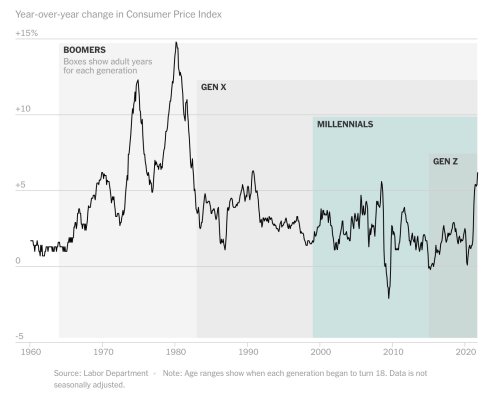Change in distribution of demand for goods vs services explains a lot of the inflation. I expect if the covid situation is ever resolved, demand patterns will revert back as will inflation.
Wow. That graphic really confirms a lot of what I read about the real problem being the demand side, not the supply chain. Thanks for posting that!!
As for its predictive value, I don't know. That chart would suggest services should be cheaper or at least, more available now. Anyone who has tried to get a plumber or building contractor to talk to them lately might disagree. I did get some auto body work done during the depths of the pandemic shutdown, when the shop wasn't very busy, but we seem to have recovered pretty quickly from that. My regular auto body guy is now turning away work he doesn't feel like doing. We probably all have stories like that about trying to get services done.




